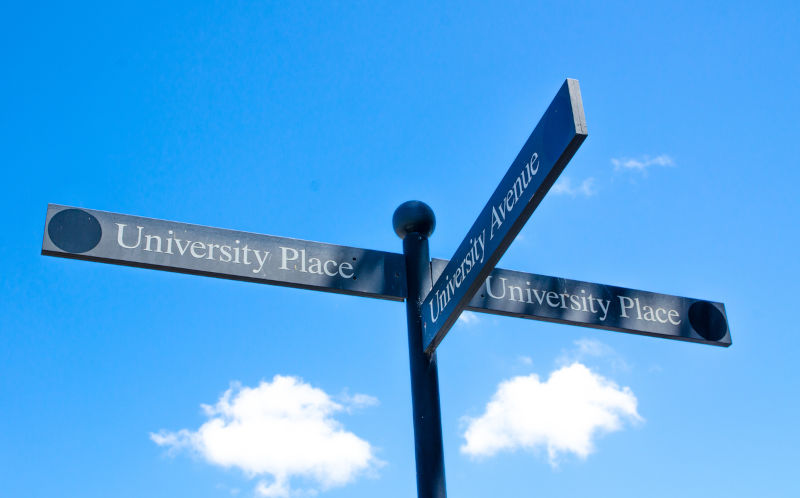The governance crisis in Australia’s universities
August 23, 2025
Recent media reports that Julie Bishop might have bullied an academic staff representative on the ANU council are alarming.
They point to the ever-widening gap that exists between councils and senior management on one side of the country’s universities, and the scholars who teach and research at the academic coalface on the other. In today’s universities, the two sides are like ships passing in the night.
The governing councils of contemporary Australia’s public universities are antiquated hangovers from 19th century ideas about how universities should be run. The founders of Sydney and Melbourne universities in the 1850s were determined that the oversight of their institutions should be the responsibility of councils composed of judicial, professional and business figures, along with a smattering of parliamentary representatives. Those stout souls were charged with overseeing the respectability and sobriety of their universities, and approving the utilitarian or professional degrees in medicine, law and engineering that those universities were expected to offer. Liberal arts (humanities) courses were to be kept to a minimum and any attempts to introduce divinity or theology degrees were firmly resisted. A utilitarian and secular university culture was the order of the day.
Developments of public universities across the country have since followed suite. Today’s university councils are now mainly made up of like-minded lay people, many prominent in the business world and the professions, with just a smattering of staff and student representation. It is a culture that has adapted to a managerialist administrative orthodoxy that took root in universities from the 1980s. That orthodoxy stipulated that universities should be run like big businesses. Councils are responsible for appointing the vice-chancellor (chief executive) of their universities and approving the bloated salaries and perks that accompany that office. At the urging of council members, today’s senior university managers are almost entirely focused on running their institutions as businesses, aping chief executives in private corporations.
This is a very serious matter because few members of the country’s university councils have achieved any kind of academic distinction as lecturers or professors. Few have a record of research and publications in international journals. Few have any first-hand experience of what it is like to teach and research in universities. Few have little knowledge of the history and philosophy of higher education. One wonders, for example, how many have read John Henry Newman’s defence of a “Liberal education”? How many know about Wilhelm von Humboldt’s defence of the fundamental complementarity of utilitarian (professional) and liberal (humanities) curricula in the modern university. They are mainly focused on applying their experiences in business and the professions to the universities for whose oversight they are responsible. The result, as Professor Raewyn Connell has noted, is that “the cultural rationale of universities as bearers of truth, of rigorous thought, […] [is] becoming deeply compromised” (“Australian universities under neoliberal management: the deepening crisis.” International Higher Education, 8, 2015).
Reform of university governance in Australia is long overdue. A first step would be to review the role of councils. They are a large cost to university budgets. (Consider travel allowances, per diems, entertainment – especially those expensive junkets known as “council retreats” in salubrious resorts). A stringent cost-benefit analysis of their performance is badly needed. Indeed, the sky would not fall in if councils were abolished altogether. It is arguable that all they have achieved in Australia over the past half century or so has been to entrench the deeply destructive divide that exists between our universities’ senior managers and academic teachers and researchers. Recent surveys of the ANU’s academic staff point to the levels of alienation from senior managers that so many academics all round the country today experience in their senior managers.
As a body, councils add next to nothing to the real work of the university. The only purpose that university council membership appears to serve these days is to enhance the standing that its members enjoy in the wider community. It probably helps in getting a leg up in the arcane business of being awarded a gong in the Australian honours system, or in some equally meaningless status-seeking arena. And on retirement from the council, you could even be awarded an honorary doctorate.
The most important policy and academic oversight body in the contemporary Australian university is the Academic Board. Its primary role is to uphold the academic integrity of its university, including its research integrity, while focusing on the development of curricula and teaching. It is usually comprised of elected academic staff members and some student representatives. It may be useful to add some members from outside the university, but these should be kept to a minimum. Its decisions are nearly always rubber-stamped by councils, raising yet more questions about the usefulness and legitimacy of the latter.
Then there is the matter of who vice-chancellors are and how they are appointed. In fact, the ANU is one of the very rare instances in which a VC has been appointed from within the institution which she now heads. The vast majority come — or have come — from different institutions, even different countries. They have next to very little direct experience or understanding of precisely what conditions are like at the teaching and research coalface in the institutions which they are meant to be managing. Much the same is true of other senior managers. Academic managers have become a new and very mobile class in Australia’s universities.
Vice-chancellors should be elected from among the senior professors within the institutions they are to head, and for a specified time (a maximum of six to eight years). And it’s time to rename the position as president of the university – “vice-chancellor” is confusing to those outside the higher education community, and it’s misleading; it suggests the VC is subordinate to the chancellor when in fact it is (or should be) the other way round. The same should be true for other appointments to senior managerial roles in the university. Moreover, salaries of senior managers, including the vice-chancellor/president should never be more than about 20% above that of a full professor.
Australia’s universities have to become self-governing institutions, nurturing a sense of academic community among their exhausted and alienated teachers and researchers. The divide between senior managers and the academic coalface has seriously undermined higher education in this country. It must end. Universities are nothing like businesses and cannot be run as such. Their role as profoundly important centres of an intellectual culture is absolutely fundamental to the healthy functioning of a civilised society. The neoliberal managerialists responsible for losing sight of this fact have no place in them.
The views expressed in this article may or may not reflect those of Pearls and Irritations.


